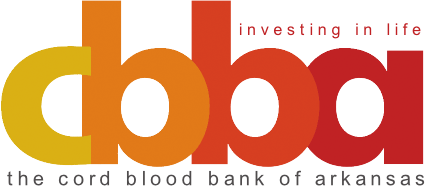The Cord Blood Bank of Arkansas and Dr. Michele Fox were featured in this recent article on ArkansasOnline.com:
Cord-blood effort near State network to start storing cells next month
By: Evie Blad
LITTLE ROCK — A statewide network will begin collecting umbilical cord blood April 1, sending the cells to a Florida facility until the University of Arkansas for Medical Sciences opens a permanent bank in July.
The Arkansas Cord Blood Bank, the first statewide storage network for umbilical stem cells in the country, will collect cord blood from women around the state who want to contribute it to a free public donation network or pay to store it for potential future use by family members.
Cord blood – blood collected from the umbilical cords of consenting mothers of newly delivered, healthy babies – contains potentially life-saving stem cells used in the treatments of diseases such as cancer. The Arkansas Newborn Umbilical Cord Blood Initiative Commission on Thursday approved a $250,000 contract with Florida-based Lifeforce Cryobanks to oversee creation of the bank in Little Rock, train UAMS workers to collect and ship cord blood,and store donations collected until the Arkansas site is formally launched this summer.
“No one else in the country has a statewide bank,” said Dr. Michele Fox, director of stem-cell therapy and transfusion medicine at UAMS. “Everyone so far has had local, onsite banks, so it’s a little difficult to predict what the interest will be.”
Arkansas has about 40,000 births a year, and doctors and researchers expect the state to contribute significantly to the public supply. Fox, the medical director for the bank, fields weekly calls from pregnant women hoping the bank will be open in time to store cord blood after their babies are delivered. Arkansas currently has no facility to collect or store umbilical cord blood, Fox said. UAMS researchers now primarily focus on using adult stem cells.
Umbilical-cord-blood stem cells – an alternative to contentious embryonic stem cells – are used in medical research and to treat some patients with blood cancers such as leukemia and lymphoma, and blood disorders such as sickle cell anemia. Some scientists believe the cells may one day be used to repair spinal-cord injuries and regenerate organ tissue, such as brain cells after a stroke, the heart muscle after a heart attack, the pancreas for diabetics and the liver for hepatitis patients.
Dr. Curtis Lowery, chairman of the department of obstetrics and gynecology at UAMS, said most obstetricians have not recommended costly private cord-blood storage for patients unless their families have a history of cancer-related illness. But demand for the stem cells in cord blood could increase as researchers find new uses for them, he said.
“This stuff is real,” Lowery said. “It’s tangible, and it is expanding.”
Cells collected for public use are stored and connected to a network that finds potential matches for patients who could use them in treatment. Under the contract approved Thursday, cord blood collected for private use before July will be shipped to the Florida facility for storage until the Arkansas bank is opened. Blood donated for public use will remain at the Florida facility, and UAMS will collect a fee from recipients if it is used in future medical treatments. The contract is awaiting approval from the Arkansas Legislature at a
March 15 hearing. Lowery will work with UAMS faculty and obstetricians throughout the state, instructing in cord-blood collection in advance of the bank’s opening, he said.
Gov. Mike Beebe in 2007 signed into law the creation of a commission to oversee the state’s umbilical-cord blood bank. An anonymous foundation awarded the bank a $250,000 grant, matched through private contributions, and the legislation provided about $180,000 in one-time funding. The bank’s ongoing budget will be provided through optional donations on state income-tax forms, private storage fees and further contributions.


